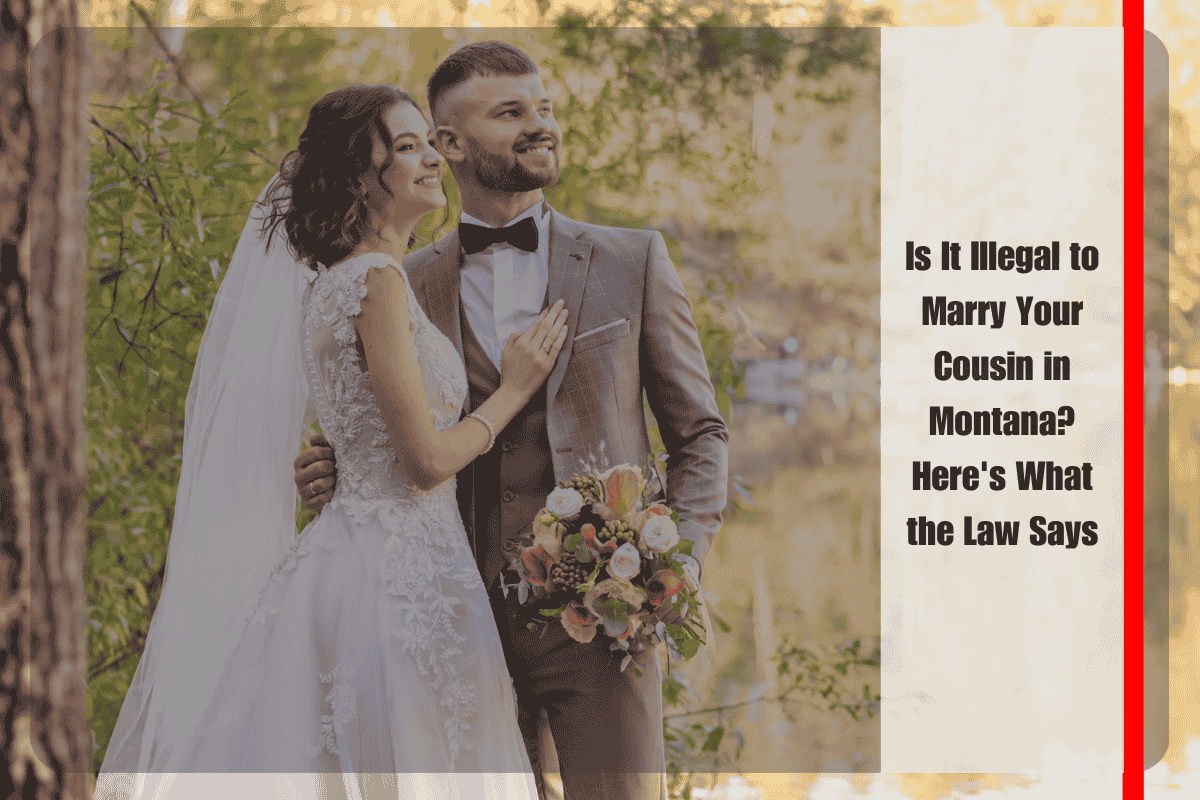It is illegal to marry your first cousin in Montana. Montana law explicitly prohibits marriages between first cousins, as well as between an uncle and niece, aunt and nephew, siblings, and direct ancestors or descendants, regardless of whether the relationship is through whole or half blood. The law is outlined in Montana Code Annotated 40-1-401, which states that marriages between first cousins are not allowed in the state.
What the Law Says
The statute is clear that a marriage between first cousins is prohibited:
“A marriage between an ancestor and a descendant or between a brother and a sister, whether the relationship is by the half or the whole blood, or between first cousins; a marriage between an uncle and a niece or between an aunt and a nephew, whether the relationship is by the half or the whole blood…”.
This blanket ban applies regardless of other factors, such as age, fertility, or whether the cousins involved are half-cousins. There are no exceptions in Montana law that allow first cousins to marry for any reason, unlike in some other states which might permit cousin marriages under certain circumstances (such as age or with genetic counseling).
Other Relationships
- First cousins once removed: Montana law does not explicitly mention them, but most legal resources confirm that first cousins once removed are also not permitted to marry in the state.
- Second cousins and beyond: More distant relatives, such as second cousins, are allowed to marry in Montana.
- Siblings and half-siblings: Marriage is prohibited between siblings and half-siblings.
- Uncles/aunts to nieces/nephews: Marriage is prohibited in these cases, whether the relationship is by half or whole blood.
Comparison to Other States
Montana’s stance is similar to several other states in the region, like North Dakota and Wyoming, which also prohibit first cousin marriages. In contrast, some states, such as California and New York, do allow cousin marriages with certain limitations. It’s critical to note that marriage laws can vary widely by state, and a cousin marriage that is legal in one state may not be recognized in another.
Legitimacy and Exceptions
- Children: If a marriage is later found to be prohibited due to the couple’s relationship, any children born through that marriage are still considered legitimate under Montana law.
- Removal of Impediment: If a prohibited relationship ceases to exist (for example, if the couple divorces and remarries someone unrelated), the previous restriction is lifted, but this does not apply to cousin marriages, as the blood relationship persists.
Key Takeaways
- You cannot legally marry your first cousin in Montana.
- Second cousins and more distant relatives are allowed to marry.
- If you move from Montana to another state, check that state’s laws regarding cousin marriage, as your marriage might not be recognized if you wed in a state where cousin marriage is permitted.
Montana law prohibits marriage between first cousins with no exceptions. Anyone considering marriage to a relative should thoroughly review both state law and consult with legal professionals if their relationship falls into a potentially restricted category.
Sources
(https://en.wikipedia.org/wiki/Cousin_marriage_law_in_the_United_States)
(https://archive.legmt.gov/bills/mca/title_0400/chapter_0010/part_0040/section_0010/0400-0010-0040-0010.html)
(https://www.legalmatch.com/law-library/article/cousin-marriage-laws.html)
(https://dataminingdna.com/can-first-cousins-marry-in-montana/)
(https://collincountymagazine.com/2025/06/30/is-it-illegal-to-marry-your-cousin-in-montana-heres-what-the-law-says/)












